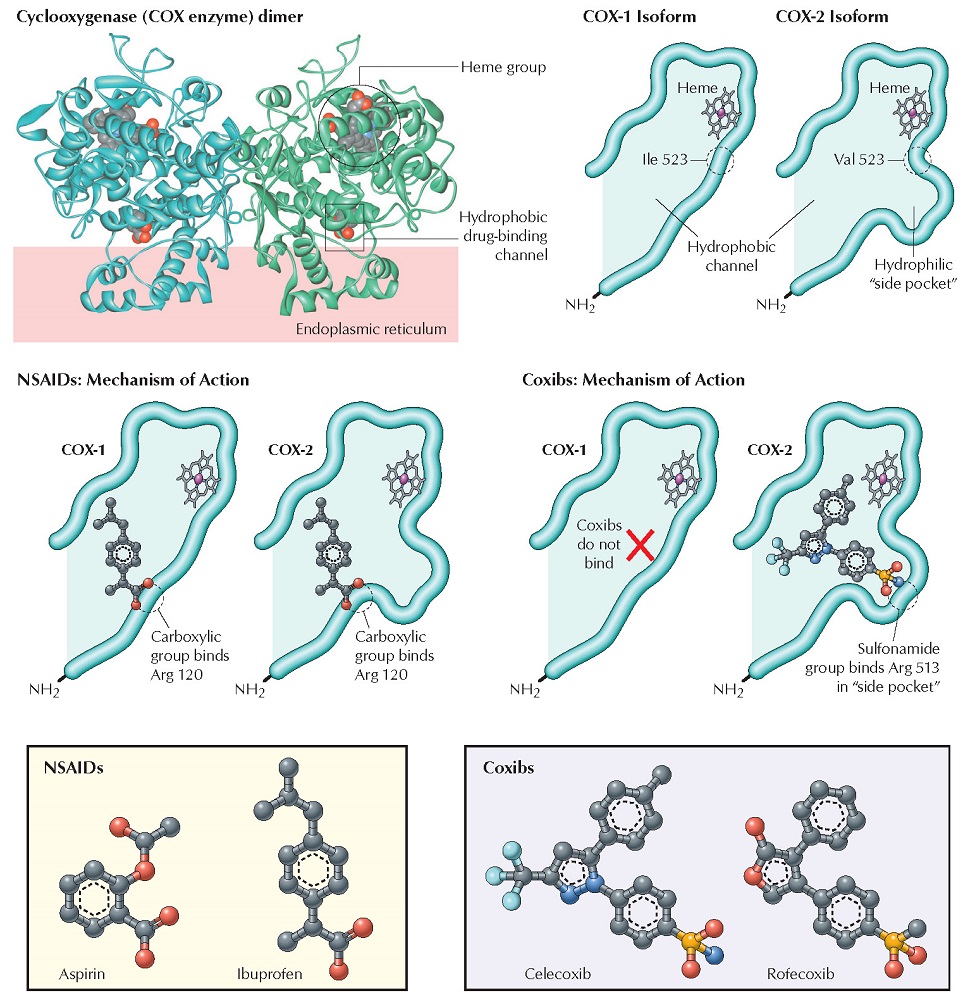Nonopioids: NSAIDs, Selective Cyclooxygenase-2 Inhibitors, and Acetaminophen
Nonsteroidal antiinflammatory drugs have good analgesic efficacy (but
often less than that of opioids), relatively rapid onset, and adverse effects
(eg, possibly fatal gastrointestinal bleeding and disturbed salt and water
balance). All NSAID effects—analgesic, antiinflammatory, antipyretic, and
antiplatelet—are thought to be due to decreased prostanoid biosynthesis via COX
inhibition. Traditional NSAIDs inhibit both COX1 and 2 isoforms, but newer
COX2 inhibitors are more selective. The analgesic
efficacy of selective COX2 inhibitors (coxibs) is approximately equal to that of traditional NSAIDs,
but the adverse effects of COX2 inhibition have yet to be fully characterized
and are somewhat controversial. The ability to selectively inhibit COX2 has
been related to the difference in amino acids at position 523 of COX1 and
COX2: isoleucine in COX1, valine in COX2. The mechanism of action of
acetaminophen is uncertain
but is thought to be via CNS effects.





